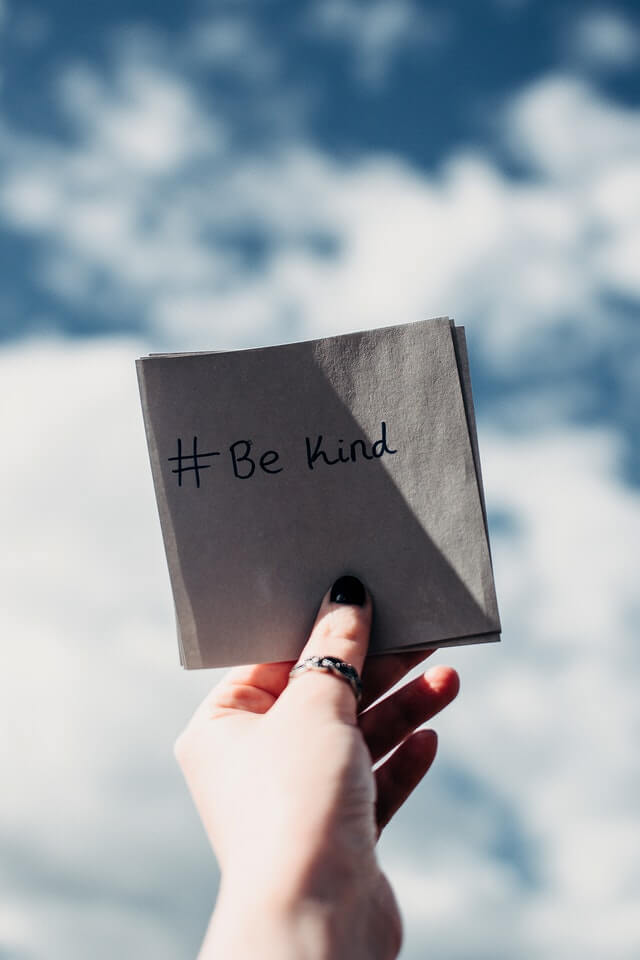Maintaining Good Mental Health During Lockdown
Friday 24th Apr 2020

Written by Krishna Solanki
Although feelings of stress are a normal response to the current unusual circumstances, it is important that we try to lower the impact it has on ourselves, both physically and emotionally. You may feel the stress of keeping on top of schoolwork, preparing for higher education, or just dealing with the changes and new stressors we are facing at this time.
As a result, I thought would be helpful to compile ideas to help manage your mental health and use your time in a more productive way. Having said this, lockdown is not a competition to be the most productive! You should primarily focus on yourself, and do what makes you feel best.
Managing your time may also be beneficial, and this may take form in a variety of ways, whichever works best for you: creating a daily or weekly ‘To do’ list, or creating a timetable are both helpful.
Exercise also helps, allowing you to use up excess energy and can help clear your thoughts.
Practising mindfulness is a great way to feel in control, present and calm, one or two of which you may have struggled with recently; it can also help prevent you from feeling overwhelmed. You can use an app, like Headspace or Calm, where it is free unless you pay for a premium version, or you could use online resources such as YouTube, where someone has posted 10 mindful exercises. You can also find a variety of free meditations for mindfulness here.
Another activity which is important for mental health is keeping in contact with friends and family. Tabletopia is a website which allows you to play board games online with friends or people around the world. The creators of Uno and Mario Kart have also made app versions of their games, which you can play with friends. A great idea is to host a Quiz Night with your friends, where you all video call on an app like Zoom, Houseparty or Discord, with someone as the ‘Quizmaster’, and with each round, each player sends their answer in.
If you would like to learn something new, you could learn a new language. Apps like Duolingo, Babbel and Memrise are all great for starting. You could also try your hand at learning to code in a language like Python, where you can find many basic programming projects online such as here, where they also provide a solution (like other languages, there are generally various ways to communicate, and that is the same with coding: there are various ways to code the same program, so don’t be put off if your code is slightly different!).
If you don’t want to learn a new language, then you may want to try a MOOC, or a Massive Open Online Course. A variety of websites hold these online courses; here are a few: MOOC, Future Learn, The Open University, and Open Culture. Most courses are free, but for some require a payment to do them or to receive a certificate of completion.
This is also the perfect time to create or update your CV or LinkedIn profile. I’d recommend everyone to have both, and to have them up to date. This will make it much easier in the future when applying to jobs. Pathway CTM produced a great CV Writing Workshop, which you can view here. You may also want to watch the LinkedIn Masterclass from Pathway CTM here.
Exercise can help reduce stress, allowing you to use up excess energy and clear your thoughts. It may seem difficult, especially if you have little space at home, but there are many workouts online where you don’t require much space. Be sure to take breaks if you feel tired, though, and stay hydrated! Otherwise, a walk or run outside is always good, but do ensure to keep 2 metres apart from others.
However, if you are feeling less productive but still want to do something, there are still a variety of things you can, with relatively little mental or physical effort. Every Thursday, the National Theatre releases a different play on YouTube for free. Currently you can watch Treasure Island, and from tomorrow at 7pm you can watch Twelfth Night.
You can also start working on your reading list if you enjoy reading. If you don’t have any books at home that you’d like to read, you can access some from a great collections from the Open Library or ManyBooks.
However, if you prefer not to read, you can use Audible, where they’ve released some audiobooks to be accessed on any device for free during lockdown. You can also listen to podcasts, for example on BBC Sounds, where you can browse their vast range. I’ve listened to a couple of episodes of a fascinating podcast called Mind Changers, based around famous psychology experiments, which has allowed me to delve deeper into the field of psychology, one of my A Level subjects. You can also access free podcasts on Spotify and the Podcasts app on Apple devices.
If you don’t have a Netflix or Amazon Prime account, then you can still access a lot of great TV shows and films online, through on-demand sites such as BBC iPlayer, ITV Hub and All 4.
Journaling or writing a diary is both an emotional and creative output and can help dealing with difficult emotions you may be feeling. It would also be interesting to reread what you’ve written, in the future!
If you do find yourself becoming increasingly worried for your or a family member’s mental health, here is a link to NHS’s list of mental health helplines, where you can access expert advice and information. In particular, Mind has some very useful advice on supporting your mental wellbeing during lockdown.


